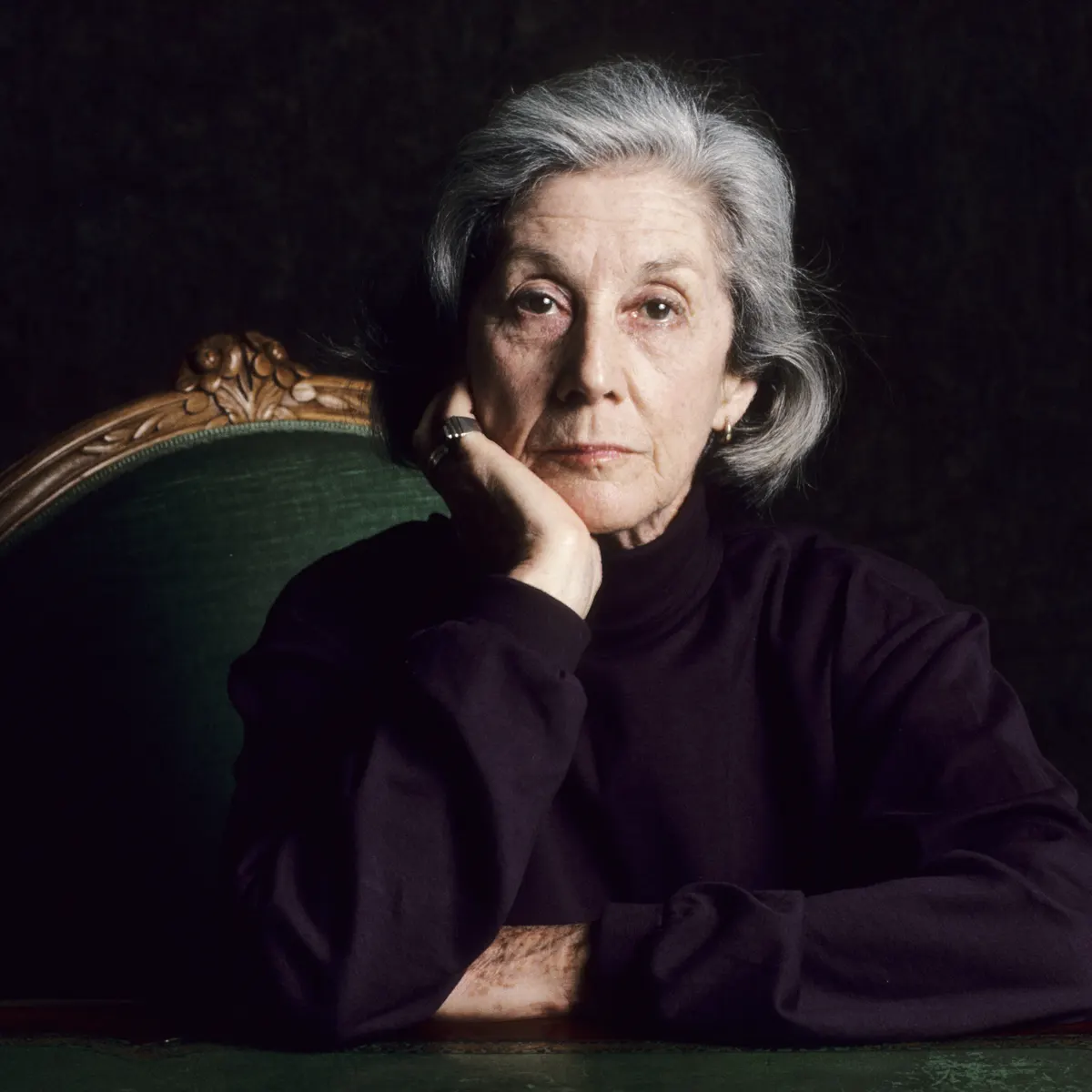Power and Prosperity: Kenya’s Wealthiest Individuals of 2024
Meet Kenya’s Leading Titans of Industry: Discover the influential figures shaping the nation’s economy in 2024. From industrial giants and visionary entrepreneurs to seasoned business leaders, these individuals not only drive financial growth but also inspire innovation and community impact across Kenya and beyond.
Narendra Raval
Narendra Raval, widely known as “Guru,” is one of Kenya’s most influential and wealthiest individuals. Born in India, he arrived in Kenya in the early 1980s and embarked on a career in construction before venturing into the steel industry. In 1992, Raval founded Devki Group, which has grown into a diversified conglomerate encompassing steel manufacturing, cement production, and real estate.
Today, Narendra Raval’s leadership of Devki Group has not only solidified its position as a key player in Kenya’s industrial sector but also significantly contributed to the country’s economic growth and job creation. His flagship company, Devki Steel Mills, is renowned for producing high-quality steel products that meet global standards.
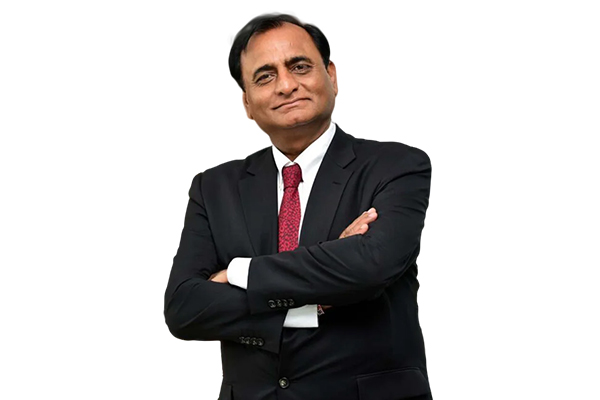
Outside of business, Raval is deeply committed to philanthropy through the Narendra Raval Foundation. His foundation supports various initiatives in education, healthcare, and community development, benefiting numerous Kenyans across the country.
Narendra Raval is married and has children, although specific details about his family life are often kept private. His age and precise net worth can fluctuate with business and economic changes but are generally estimated to be in alignment with his prominent stature in Kenya’s business community.
Manu Chandaria
Manu Chandaria, a titan of industry in Kenya, stands as one of the country’s most revered and influential figures. Born in Nairobi in 1929, Chandaria’s journey to becoming a business magnate is a testament to his vision, perseverance, and dedication to Kenya’s economic development.
Chandaria’s entrepreneurial spirit took root early in his career when he joined his family’s modest trading business. Over the decades, he expanded and diversified the enterprise, eventually co-founding the Chandaria Group, a conglomerate with interests in manufacturing, packaging, and real estate.
Under Chandaria’s leadership, the Chandaria Group has grown into a powerhouse, contributing significantly to Kenya’s industrial sector. The group’s flagship company, Chandaria Industries, is renowned for its production of paper and packaging products, serving both local and international markets.
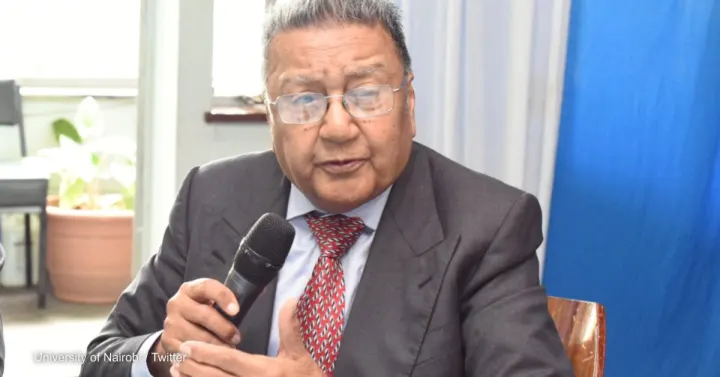
Beyond his business acumen, Manu Chandaria is known for his philanthropic efforts and commitment to social causes. Through the Chandaria Foundation, he has championed initiatives in education, healthcare, and community development, positively impacting countless lives across Kenya.
At 95 years old, Manu Chandaria continues to inspire generations with his wisdom and leadership. His contributions to Kenya’s economy, combined with his philanthropic endeavors, have cemented his legacy as not just a businessman but also a compassionate leader dedicated to the welfare of his fellow Kenyans.
Uhuru Kenyatta
Uhuru Kenyatta, born on October 26, 1961, in Nairobi, Kenya, holds a pivotal role in the nation’s political landscape as its fourth President. Raised in a family steeped in political legacy, Uhuru is the son of Jomo Kenyatta, Kenya’s first President, and Mama Ngina Kenyatta. His early education at St. Mary’s School in Nairobi and later at Amherst College in the United States provided a foundational understanding of global perspectives and governance.
Uhuru Kenyatta’s business ventures include interests in banking and hospitality, reflecting his entrepreneurial spirit before dedicating himself fully to public service. He married Margaret Kenyatta (née Gakuo), and together they have three children: Jomo, Jaba, and Ngina. Margaret Kenyatta is widely recognized for her advocacy in healthcare through the Beyond Zero initiative, which focuses on maternal and child health.

As for Uhuru Kenyatta’s net worth, specific figures can vary with business fluctuations and economic changes, but his wealth is substantial, reflecting his family’s historical prominence and his own business endeavors.
Uhuru Kenyatta’s presidency has been marked by efforts to advance Kenya’s infrastructure, stimulate economic growth, and promote regional stability. His leadership continues to shape Kenya’s trajectory, balancing national development with global partnerships and regional integration efforts in East Africa.
Peter Munga
Peter Munga, born in 1944, is a pivotal figure in Kenya’s financial sector, renowned for his entrepreneurial acumen and significant contributions to the banking industry. His career began in the insurance sector, where he gained valuable experience before co-founding Equity Building Society in 1984. This marked the beginning of his transformative impact on Kenya’s financial landscape.
Under Munga’s leadership, Equity Building Society evolved into Equity Bank, a pioneering institution that revolutionized banking by focusing on providing financial services to underserved segments of society. Through innovative strategies and a customer-centric approach, Equity Bank grew rapidly, expanding its network across Kenya and neighboring countries.
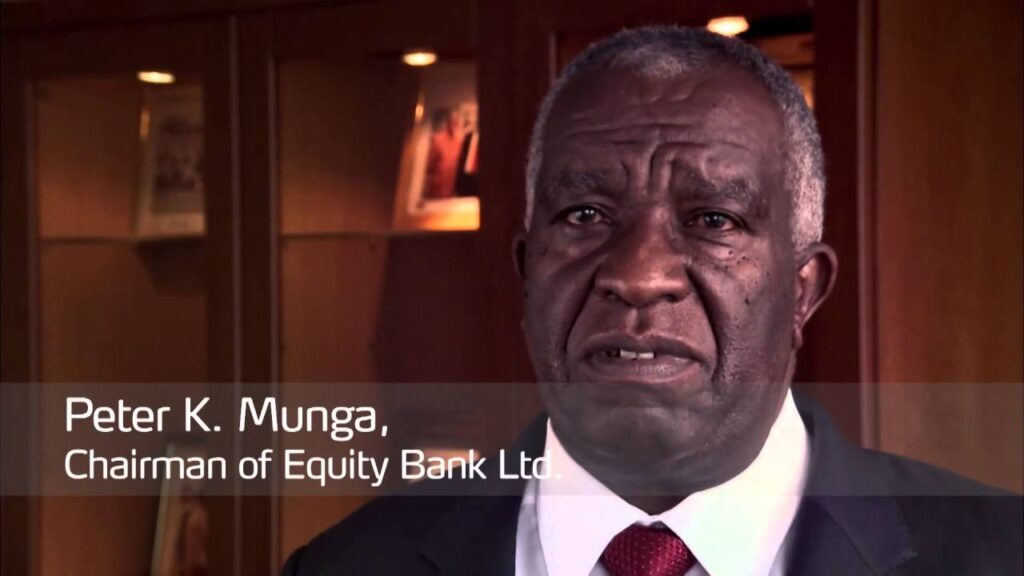
Beyond business success, Peter Munga is actively involved in philanthropy and community development initiatives, championing programs in education, healthcare, and entrepreneurship. His contributions have earned him recognition for driving financial inclusion and setting benchmarks for corporate governance in East Africa.
Peter Munga’s journey from insurance to banking entrepreneurship exemplifies resilience, foresight, and a deep commitment to uplifting communities through access to financial services. His legacy as a visionary leader continues to inspire future generations, reflecting his enduring impact on business innovation and social responsibility in Kenya.
James Mwangi
James Mwangi is a transformative figure in Kenya’s banking and financial services sector, renowned for his visionary leadership and profound impact on economic inclusion. Born in 1962, Mwangi’s career began at Equity Building Society (now Equity Bank) in the 1980s, where he rose through the ranks to become the CEO. Under his leadership, Equity Bank revolutionized Kenya’s banking landscape by focusing on providing accessible financial services to previously underserved communities.
Mwangi’s strategic vision and emphasis on customer-centric banking propelled Equity Bank’s rapid expansion across Kenya and East Africa. The bank’s innovative approach, including mobile banking and agency banking models, significantly enhanced financial inclusion and empowered millions of individuals and businesses.
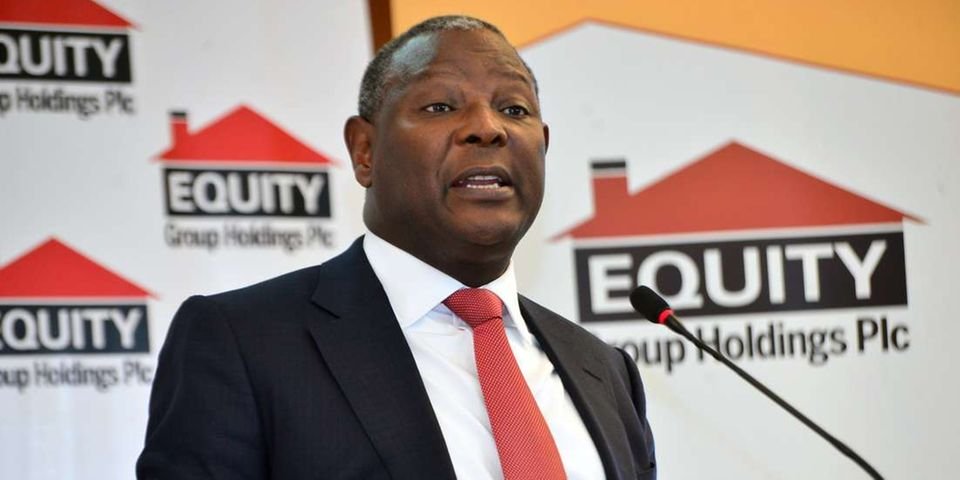
James Mwangi’s leadership at Equity Bank has garnered international acclaim, including awards such as the Ernst & Young World Entrepreneur of the Year and the African Banker of the Year. His role in driving sustainable economic growth and development is widely recognized.
Beyond his professional achievements, Mwangi is committed to philanthropy and social impact initiatives. Through the Equity Group Foundation, he has spearheaded programs in education, healthcare, and agriculture, transforming communities and improving livelihoods across Kenya.
James Mwangi continues to advocate for innovative solutions to address socio-economic challenges in Africa. His commitment to leveraging banking and technology to drive inclusive growth underscores his belief in the transformative power of entrepreneurship and financial empowerment.
James Mwangi’s leadership at Equity Bank exemplifies resilience, innovation, and a steadfast commitment to advancing financial inclusion and socio-economic development in Kenya and beyond. His visionary approach continues to inspire generations of leaders and entrepreneurs, leaving an enduring legacy of positive impact and inclusive prosperity.

